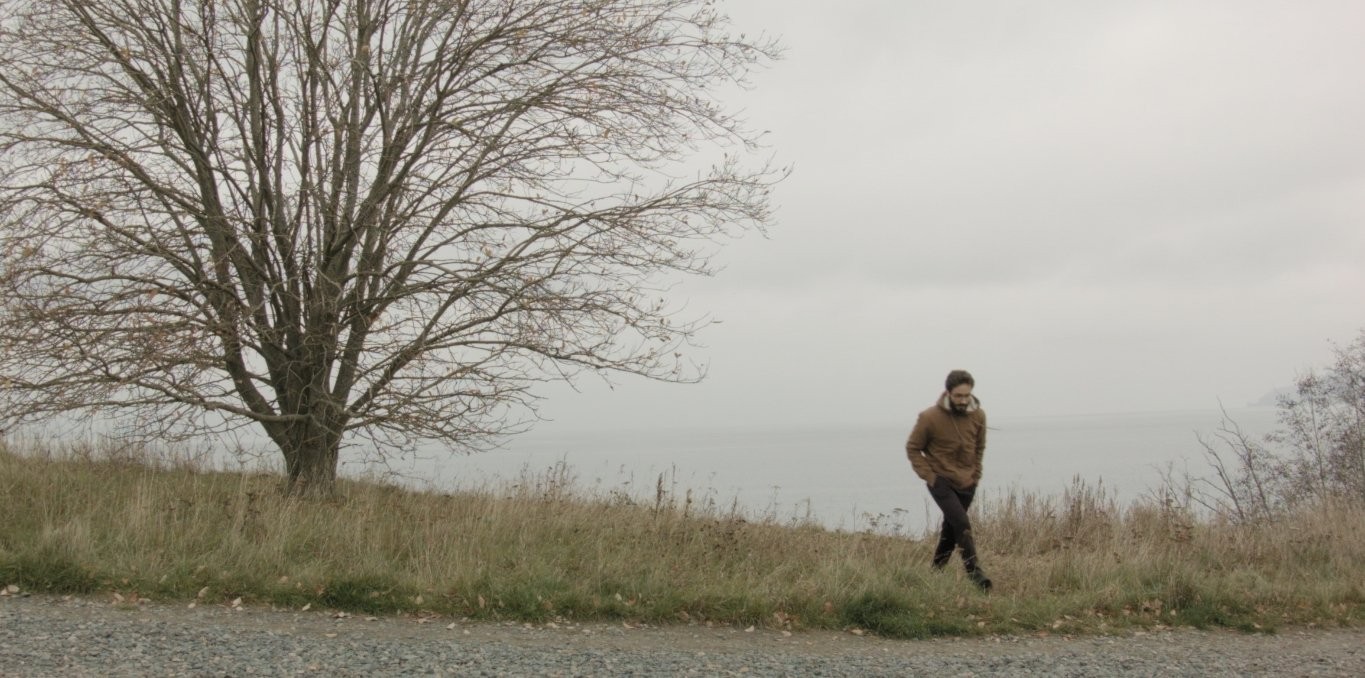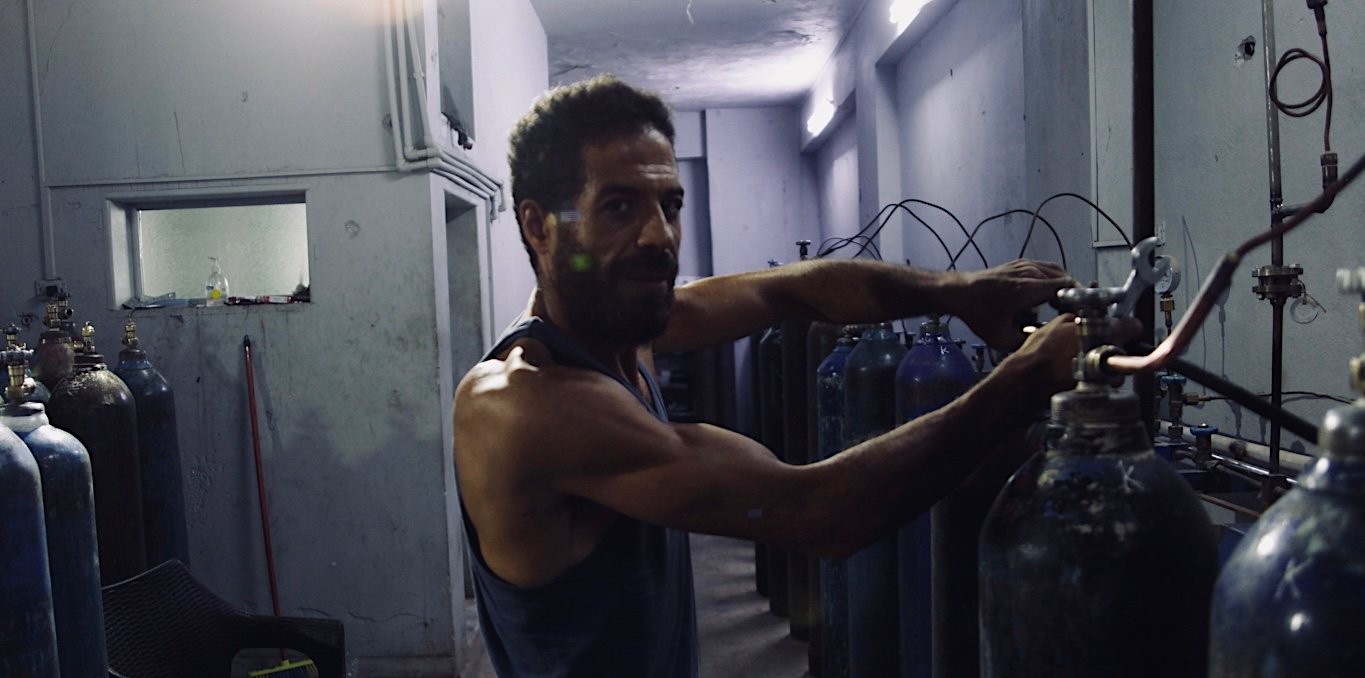Living Syria (2011–2023)

An immersion into the new generation of Syrian filmmakers who have made documentary a powerful tool of resistance.
Since the beginning of the revolution in 2011, the situation in Syria has been extensively documented by Syrians who filmed the revolution, the war, and the constraints linked to their displacement, both inside the country and abroad. While a vast number of videos circulated on platforms such as YouTube, many individuals also became filmmakers, even without having planned to. Documentary cinema experienced a real boom during this period: this form of filmmaking was able to assert itself after 2011 for practical reasons, while also responding to ethical and political imperatives. Until 2011, filmmakers still had some room to maneuver within a film industry controlled by the state, but everything changed with the onset of the revolution-turned-war. Filmmakers faced an increasingly repressive system in which anyone caught filming risked death, either in the streets or in prison. It is within this entirely new and extremely difficult environment that new ways of making cinema developed in the country, and a new generation of filmmakers emerged, challenging the regime and its politics more directly. In this context, production conditions were particularly harsh, and filmmaking was no longer just about thinking in terms of cinematic technique or narrative. Making films meant first learning how to encrypt hard drives, hide equipment inside plaster while traveling, or ask others to film on one’s behalf when movement became impossible. In short, making cinema in Syria meant developing strategies of circumvention and creating the infrastructure that would allow these films to exist.
Since the fall of the Assad regime on December 8, 2024, culture has re-emerged in the public sphere: films by Syrian filmmakers have been screened in the country for the first time, and new cinematic projects have openly begun. In a country where the future remains fragile, reconstruction is cautious but under way: nearly 20% of exiled Syrians have returned, families are searching for traces of the disappeared, and voices are emerging in ways unseen during the decades of the Assads, father and son. A new phase is opening for Syrian cinema, one that will be worth following closely. This cinematic program focuses on three documentaries—three experiences of Syria between 2011 and 2023—captured by young filmmakers, most of whom began filming at the very start of the revolution. Three perspectives, both strong and subtle, in which the hope for a new relationship between Syrians and their country was already taking shape.
Justine Pignato
Researcher in film and media studies
and programmer
A word from our programmer
Although my years living in Lebanon drew me to take a closer interest in Syria — at a time when a large number of Syrian refugees were settling in Beirut — I truly discovered Syrian cinema at FIDMarseille (the international film festival in Marseille, France), where I worked the following year. I was struck by the fact that documentary films made by Syrians were able to circulate in international festivals even as the country had plunged into war. I quickly found myself asking a simple question: how is it possible to make documentary films under such conditions? I decided to dedicate my doctoral thesis to this very question. Published in 2024, it is titled “Produire un film documentaire à visibilité internationale dans une Syrie marquée par la guerre (2011-2021) : un processus infrastructurel, mobilitaire et transnational”. Interested in the practical aspects of how these films are made, I placed great importance on the conversations I had with the Syrians involved in their creation.
3 products

Still Recording
Subscription access
For five years, at the heart of the Syrian civil war, a group of aspiring filmmakers documented the fighting and the daily life of the people in the city of Douma, in Eastern Ghouta, a besieged suburb of Damascus.

Chasing the Dazzling Light
Subscription access
Director Yaser Kassab followed in his father’s footsteps, emigrating from Syria to Europe as a young man, and, like his father, he also aspired to become a filmmaker. They now work together on this film remotely. From Syria, the father provides guidance to his son over the phone or via video calls, offering advice on future film projects and life in general—loving conversations punctuated by we...

Damascus is Breathing
Subscription access
Since the beginning of the coronavirus pandemic, director Omar Malas has been asking himself a question: what would be the impact of the pandemic on Syrians after years of war? This documentary project is an attempt to portray the work of a citizen-led initiative in which he took part during the first wave of the pandemic.

Still Recording
Subscription access
For five years, at the heart of the Syrian civil war, a group of aspiring filmmakers documented the fighting and the daily life of the people in the city of Douma, in Eastern Ghouta, a besieged suburb of Damascus.

Chasing the Dazzling Light
Subscription access
Director Yaser Kassab followed in his father’s footsteps, emigrating from Syria to Europe as a young man, and, like his father, he also aspired to become a filmmaker. They now work together on this film remotely. From Syria, the father provides guidance to his son over the phone or via video calls, offering advice on future film projects and life in general—loving conversations punctuated by we...

Damascus is Breathing
Subscription access
Since the beginning of the coronavirus pandemic, director Omar Malas has been asking himself a question: what would be the impact of the pandemic on Syrians after years of war? This documentary project is an attempt to portray the work of a citizen-led initiative in which he took part during the first wave of the pandemic.
